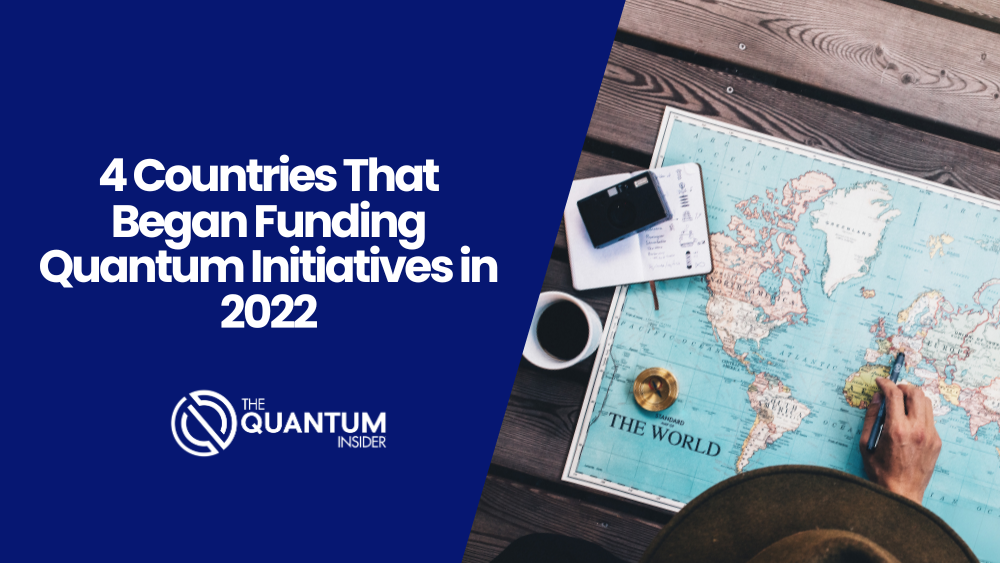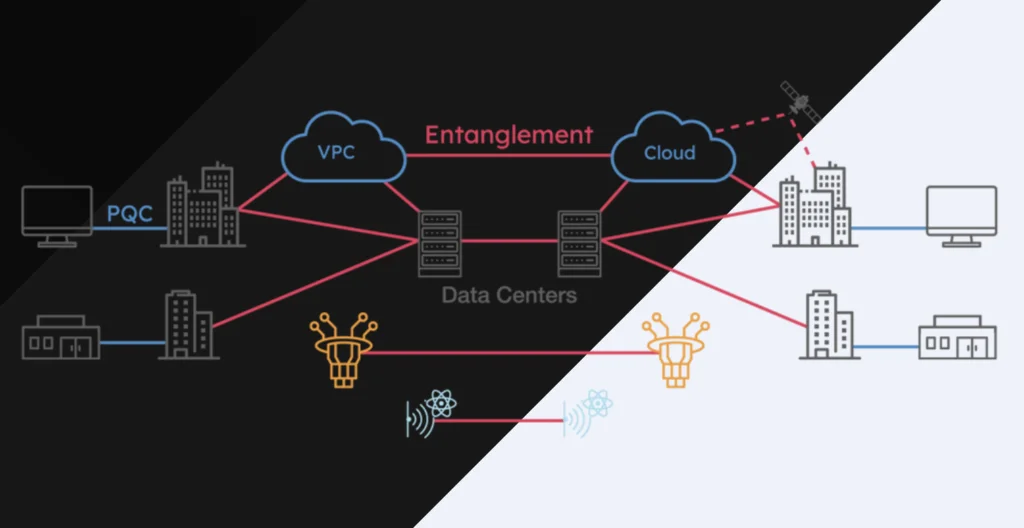Governments undertaking national quantum initiatives face several technological and infrastructure challenges. After all, these guided initiatives require significant investment and a capable national body willing to lead the effort and collaborate with academia, industry, and other public institutions. Moreover, governments must make critical decisions about research, human capital, industry participants, and market opportunities to ensure the success of these initiatives.
Despite the challenges, more than 20 governments worldwide have launched national quantum initiatives since 2009, providing over $30 billion in funding. These investments hold the potential to fuel spinoffs capable of making significant contributions to quantum technology and yield promising innovation.
Most countries with a GDP of over $1 trillion have initiated a quantum program, with Mexico and Indonesia being examples. Additionally, roughly half of the countries with a GDP over $500 million can claim the same. Countries with a smaller GDP, especially latecomers to quantum computing, frequently aim to establish a market niche.
Listed below are 4 countries that funded a national quantum initiative in 2022: Brazil, Spain, South Africa, and the UK. Each initiative has sought to tailor their focus to meet current industry needs.

To learn more about countries funding a national quantum initiative, you can review detailed information about them on our quantum market intelligence platform.
Brazil
In December, the Brazilian government revealed its intention to fund a quantum computing initiative through EMBRAPII, or Empresa Brasileira de Pesquisa e Inovaço Industrial (Brazilian Company of Industrial Research and Innovation).
The Brazilian government announced its plan to fund a quantum computing initiative through EMBRAPII (Empresa Brasileira de Pesquisa e Inovação Industrial) in December 2022. EMBRAPII will invest approximately $11 million to establish a Competence Center in Quantum Technologies in Brazil. In addition, the initiative aims to help businesses access cutting-edge products in the quantum space more quickly.
The Competence Center will establish an association of private companies on a membership basis to promote an open innovation environment that encourages the formation and attraction of startups.
The Center also intends to provide selected businesses with resources to enhance their knowledge, education, and human resources in quantum computing. Finally, companies will have a 42-month timeframe to pursue research and development activities in quantum computing with support from the Center.
“The operation of this Center is extremely strategic for Brazil since it develops new technology together with national research centers and the private sector, with the participation of large companies and startups. The model encourages the development and training of human resources for the coming technological challenges. Our intention is to create a great innovation ecosystem around the subject,” says Carlos Eduardo Pereira, Embrapii’s Chief Operating Officer.
Spain
The Quantum Spain initiative seeks to develop the country’s quantum computing ecosystem. As part of this initiative, researchers plan to construct the first Spanish quantum computer at the Barcelona Supercomputing Center in the first half of 2023.
Once installed, researchers plan to incorporate the quantum computer into the new MareNostrum 5 supercomputer by July. The integrated computer will be the product of a temporary joint venture between the Spanish tech firms Qilimanjaro Quantum Tech and GMV. Last month, IQM Quantum Computers announced that it would produce quantum processing units for the first Spanish quantum computer.
Quantum researchers believe integrating the new quantum computer into MareNostrum 5 will significantly enhance the potential for research and innovation in Spain. The integration will also enable solutions that complement the existing supercomputers’ capabilities, boosting the country’s research and innovation efforts.
The Quantum Spain initiative will enable the research community, companies, and public organizations to have access to the new integrated quantum computer. This initiative is aligned with the Digital Spain 2026 agenda, which comprises 25 sites across 14 autonomous communities linked to the Spanish Supercomputing Network. The Barcelona Supercomputing Center manages this network, providing a robust and centralized infrastructure for the country’s quantum computing efforts.
South Africa
Last January, the Department of Science and Innovation (DSI) of South Africa awarded $3 million in funding to a consortium led by Wits University to oversee a national quantum technologies initiative.
To establish the South African Quantum Technologies Initiative, the DSI provided the initial funding allocation until March 2025. The initiative aims to develop quantum centers at five universities throughout the country and has plans to expand the number of centers in the future.
Instead of creating hardware for quantum computers, the Initiative’s researchers are focused on writing software and developing apps for quantum computers.
According to Forbes, this initiative’s focus on quantum apps is “something that is only starting to get off the ground.” The South African Quantum Technologies Initiative also plans to fund development of quantum communications, quantum sensing, and quantum metrology through start-up companies.
United Kingdom
The UK National Quantum Strategy (UK-NQS) was also initiated in 2022, the largest one to do so. The ten-year plan outlines several ambitious objectives that must be accomplished by 2033, which include maintaining the UK’s position among the top three countries globally in quantum investment, technology, and corporate presence.
The UK-NQS has committed £2.5 billion to achieve this goal, building on their previous £1 bn commitment in 2014. The UK-NQS strategy aims to attract additional private investment ($1.2 billion) on top of this funding. The NQS is the successor to the UK’s National Quantum Technologies Programme, created in 2013.
The UK-NQS envisions a future network of research hubs in several areas of quantum technologies (as opposed to specializing in any one area of quantum research). The NQS also aims to serve as an accelerator program for commercializing quantum technologies.
Finally, the UK government has stated that its new strategy will focus on security, emphasizing establishing a regulatory framework at both the national and international level to facilitate innovation and ensure ethical usage of quantum technologies.
Concluding Remarks
Apart from the UK program, the national quantum initiatives mentioned above are relatively small. However, being new to the industry, they can take advantage of the knowledge and expertise gained by other quantum computing initiatives. They can also benefit from the insights provided by external quantum experts to further their development.
These small initiatives may be strongly motivated to specialize in a specific aspect of quantum computing, such as quantum apps, to differentiate themselves from the competition and industry recognition. Although developing specialized quantum technology requires significant research and development, the potential rewards make it worthwhile if they can excel at it.
If you found this article to be informative, you can explore more current quantum news here, exclusives, interviews, and podcasts.















